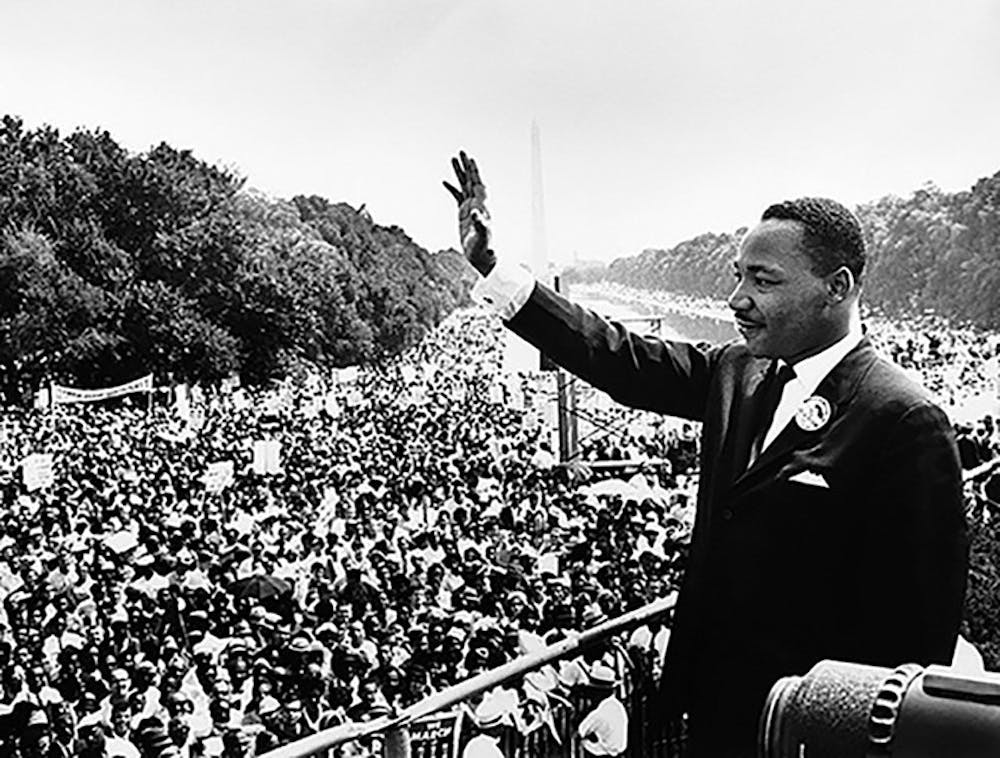“Life’s most persistent and urgent question is, ‘What are you doing for others?’”
The Rev. Martin Luther King Jr. used his speech as a way to connect people of all races and take a stand for justice.
As editors, we use freedom of speech and freedom of the press to report the news. Sometimes, that reality is hard for people to face. Sometimes, people do not like what they read or hear.
King knew this better than most. Nearly every word he uttered was met with resistance — and sometimes violence.
Although the man is gone, his dream lives on. Shippensburg University’s 27th annual March for Humanity is evidence of that.
When covering an event like this, journalists cannot allow their personal views to obstruct the meaning of an article.
As writers, it is not our job to skew the facts, to make assumptions or misrepresent reality. Our job, first and foremost, is to tell the truth — no matter how ugly it is.
Through reporting the facts, unjust actions can come to light.
We hope that by covering events like the March for Humanity, the SU community can see that there are people who are still fighting for equality.
Humanity is not defined by who you are, what you look like or what you believe.
As journalists, we have the unique opportunity to see where the root of humanity lies — in action.
The actions of one individual can make the greatest impact on humanity. We see it every day, and we will continue to witness it as we continue into our professional careers.
It all comes down to you. When you look in the mirror, who do you see?
When you hear the call to act, what will you do — for others?





The Slate welcomes thoughtful discussion on all of our stories, but please keep comments civil and on-topic. Read our full guidelines here.